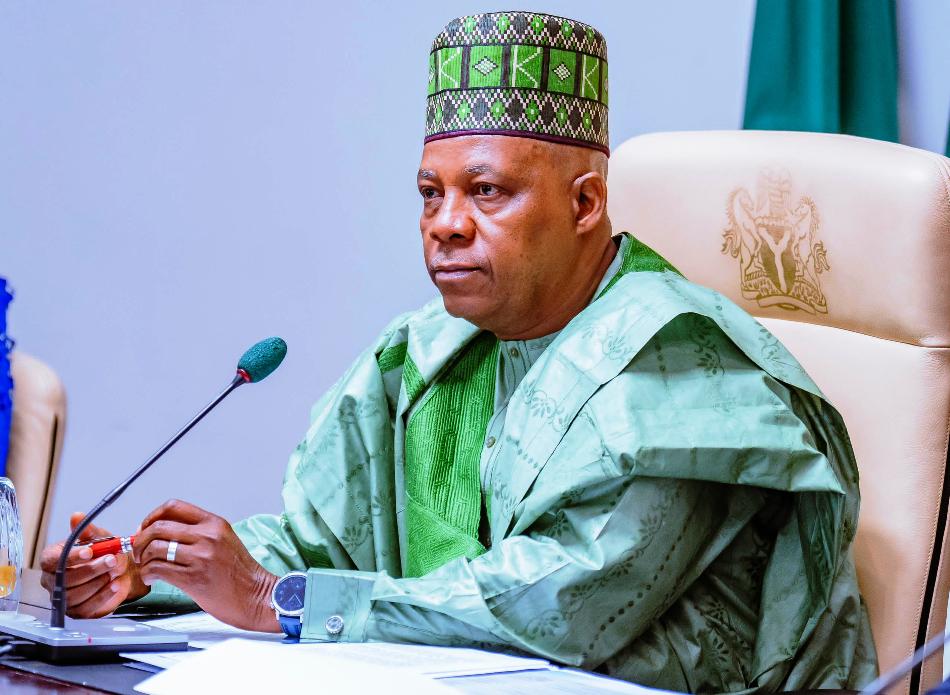The Presidency has said that the declaration of a state of emergency in Rivers State and the subsequent suspension of Governor Siminalayi Fubara and other elected officials by President Bola Tinubu were carried out in full compliance with the Nigerian Constitution.
Reacting to viral reports quoting Vice President Kashim Shettima as thanking former Attorney General and Minister of Justice, Mohammed Bello Adoke, and former Speaker of the House of Representatives, Aminu Tambuwal, for saving him from removal as Borno State governor during the Goodluck Jonathan administration, a presidential spokesman in the Office of the Vice President, Stanley Nkwocha, alleged that Shettima’s comments were deliberately twisted to create the illusion of conflict within the Presidency.
The Vice President had made the remarks during the public presentation of the book “OPL 245: The Inside Story of the $1.3 Billion Oil Block” authored by Adoke in Abuja.
Some reports interpreted his remarks as an indirect criticism of the suspension of Fubara and the appointment of Vice Admiral Ibok-Ete Ekwe Ibas (rtd) as Sole Administrator of Rivers State—describing such actions as unconstitutional.
However, Nkwocha clarified that the situation in Rivers State was fundamentally different from what Shettima faced in Borno under the Jonathan administration. He emphasized that President Tinubu’s actions in Rivers were taken to avert further political instability and were entirely within the framework of the Constitution.
“For the avoidance of doubt, President Tinubu did not remove Governor Fubara from office. The constitutional measure implemented was a suspension—not an outright removal,” Nkwocha stated.
“This action, along with the declaration of a state of emergency, was taken in response to the grave political crisis in Rivers State at the time. The situation was unprecedented, with the State House of Assembly complex under demolition and the governor facing a looming threat of impeachment by aggrieved legislators. No objective observer can deny that this decisive intervention by the President brought stability and calm to Rivers State,” he added.
Nkwocha maintained that comparing Rivers to the North-East during the Boko Haram insurgency is misleading and ahistorical.
“The situation in the North-East under former President Jonathan was marked by violent non-state actors directly challenging the sovereignty of the Nigerian state, necessitating a unified federal and state response to terrorism. In contrast, President Tinubu acted strictly within constitutional limits, and in consultation with relevant stakeholders, to preserve democratic institutions and restore order in Rivers State.”
He cited Section 305(3)(c) of the Constitution, which allows the President to take extraordinary measures “when there is a breakdown of public order and public safety in the federation or any part thereof to such extent as to require extraordinary measures to restore peace and security.”
According to Nkwocha, the persistent politically motivated violence in Rivers State, systematic attacks on federal institutions, and the near-complete paralysis of governance met the constitutional threshold for emergency intervention.
“Credible security reports indicated escalating attacks, including on national assets,” he noted.
Nkwocha affirmed that President Tinubu’s proclamation invoking Section 305(2) was ratified by an overwhelming bipartisan majority in the National Assembly, as required by Section 305(3), thereby reinforcing the constitutional legitimacy of the action.
“This cross-party consensus in suspending the government of Rivers State reflects a shared understanding among our elected representatives that the situation had reached a point of constitutional necessity.”















